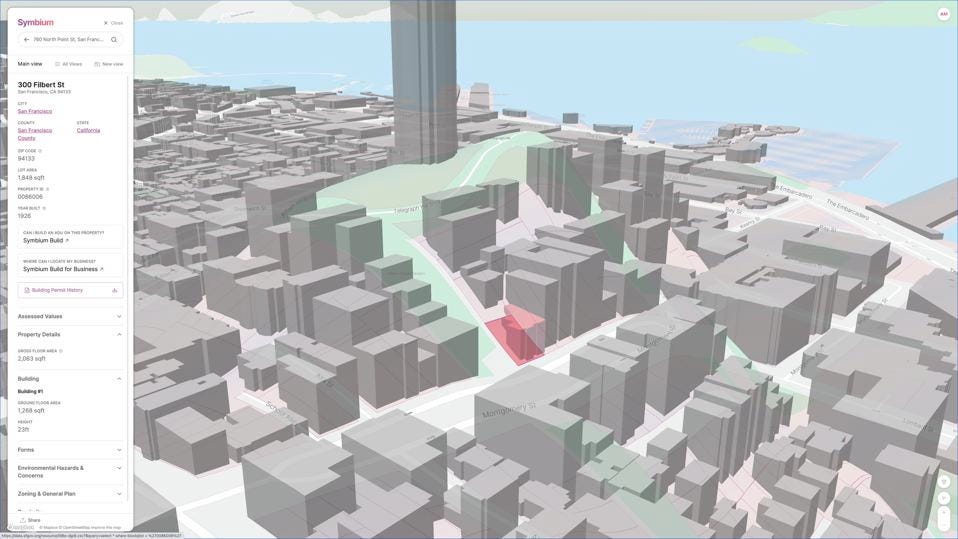|
Symbium is a US company launched in 2019. Its primary offering is a web-based service that helps homeowners, architects, and contractors in complying with the regulatory aspects of residential construction. A distinguishing feature of the service is its extensive use of Computational Law to facilitate and, in some cases, automate regulatory processes, such as permitting, inspection, and rebate distribution. The Symbium service represents a significant improvement over traditional, manual approaches to regulatory compliance and has the potential to save individuals and governments billions of dollars per year.
A recent study of home appliance replacements in the United States suggests that many hours are lost each year (5.1 million hours in 2021) due to inefficiency in permitting processes. More than 40% of available rebates for appliances go unclaimed ($350M in 2021) due to the complexity of regulations and the associated rebate processes. Problems in securing permits and inspections for appliance replacements frequently cause significant delays in completing projects (in many cases more than 100 days). And the numbers are much larger when one looks beyond appliances to other types of home improvement.
Symbium's solution to this problem is a service it calls its Citizen's Dashboard - an Internet service that facilitates interactions between citizens and governmental
agencies. The initial focus of the service is residential construction. Users include homeowners, architects, and contractors; and governmental agencies include municipalities, counties, states, and other organizations. Projects range from simple appliance replacements to the addition of accessory dwelling units (ADUs) and beyond.

The Symbium system features a variety of interrelated sub-services. (1) It provides its users with comprehensive data about residential parcels and buildings (e.g. zoning, tax assessments, and building permit history). (2) It allows its users to describe proposed changes and automatically evaluates those those changes for compliance with applicable regulations. (3) It manages transactions with governmental agencies and other organizations (e.g. applying for building permits, scheduling inspections, obtaining rebates, and so forth).
A distinctive feature of the Symbium service is its focus on citizens rather than governmental agencies. Other companies sell their products and services to individual government agencies, and as a result citizens must use different systems to interact with different agencies. In the case of Symbium, the citizen is the customer, and the system provides integrated interaction with multiple government agencies, making it easier for the citizen to manage the various aspects of construction projects.
From a technological perspective, the key to the Symbium service is its use of Computational Law technology. Symbium staffers codify planning codes and building codes as rules in a Logic Programming language (called Epilog); and the Symbium platform uses these rules to assess regulatory compliance of proposed changes. In this way, the system is able to provide instantaneous feedback on project plans, shortcutting the traditional manual evaluation process in common use today. Symbium uses a similar approach to codifying the details of regulatory processes and rebate distribution and tax incentives, and its platform uses these rules in managing transactions between citizens and governmental agencies.
The Symbium service is currently available in a handful of California cities, and the company is working to make the service available across the state in the coming year. Once that is done, it plans to expand the service nationwide.
Symbium's service has received favorable reviews from multiple journalists, with articles appearing in Forbes, Government Technology, Builder Online, and so forth. The company is also the recipient of multiple awards. In 2019, Symbium was named Hive 50 honoree. In 2020, it won the prestigious Ivory Prize for Housing Affordability. In 2021, it received the American Bar Association Women of Legal Tech award. And in both 2021 and 2022, Symbium was listed as a GovTech 100 company.
In the long term, the company aspires to apply the Citizen's Dashboard to commercial construction and other areas of regulatory compliance, such as property taxes, licenses, interstate commerce, and so forth. It sees the Citizen's Dashboard as a technology that can facilitate many types of interaction between citizens and government agencies, all part of what it calls Government Relationship Management (GRM).
For more information on the company, its current service, and its plans, drop by Symbium's website (http://symbium.com) or send a message to info@symbium.com.
Citation: Genesereth, Michael: "Symbium - The Computational Law Company", Complaw Corner, Codex: The Stanford Center for Legal Informatics, 2022, http://complaw.stanford.edu/blog/symbium.html.
|